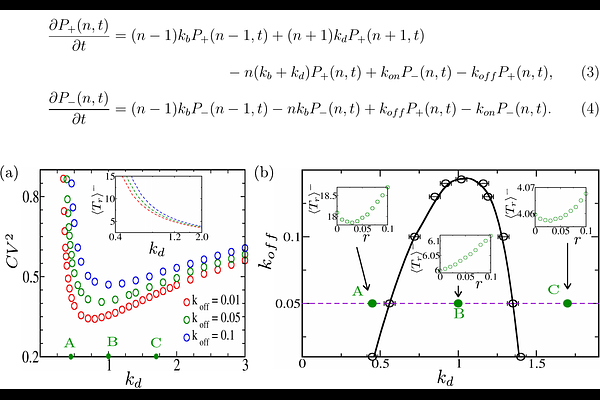Fluctuations in first passage times and utility of resetting protocol in biochemical systems with two-state toggling

Fluctuations in first passage times and utility of resetting protocol in biochemical systems with two-state toggling
Barman, H. K.; Das, P.; Ali, S. Y.
AbstractInteresting theoretical problems of target search or threshold crossing, formally known as {\\it first passage}, often arise in both diffusive transport problems as well as problems of chemical reaction kinetics. We study three systems following different chemical kinetics, and are special as they toggle between two states: (i) a population dynamics of cells with auto-catalytic birth and intermittent toxic chemical-induced forced death, (ii) a bond cluster model representing membrane adhesion to extracellular matrix under a fluctuating load, and (iii) a model of gene transcription with a regulated promoter switching between active and inactive states. Each of these systems has a target state to attain, which defines a first passage problem - namely, population becoming extinct, complete membrane detachment, or mRNA count crossing a threshold. We study the fluctuations in first passage time and show that it is interestingly non-monotonic in all these cases, with increasing strength of bias towards the target. We also study suitable stochastic resetting protocols to expedite first passage for these systems, and show that there is a re-entrant transition of the efficacy of this protocol in all the three cases, as a function of the bias. The exact analytical condition for these transitions predicted in earlier literature is verified here through simulations.